THE events of the last few weeks, as Greece has fought for a new bailout deal, have left us all in shock. They have shown us how oppressive and vindictive the EU can be and, in contrast, how spirited and stoical the Greeks are when under attack and fighting for their lives.
I don’t want to add any more to the voluminous public discussions. Greater minds than mine have debated all the political/economic issues of the crisis. As someone who loves Greece, I can only pray there will be a good outcome for the country, despite more austerity piling up against it.
What I have gathered from watching recent events unfold – the June referendum and then EU leaders, particularly Germany, acting like schoolyard bullies – is this: most Europeans don’t really understand Greeks, or their culture. It’s as if few of them have ever been to Greece.
What EU leaders have tried to do is shoehorn the Greek character into a northern European template. It won’t go; it never will go. It’s ham-fisted and almost laughable. Greeks have a different story, a different history and cultural influences. Greece is still the least European country in Europe, still leaning gently towards its old Levantine influences, which makes it the exotic, appealing, often chaotic and, sometimes, maddeningly different place that it is. But we wouldn’t have it any other way.
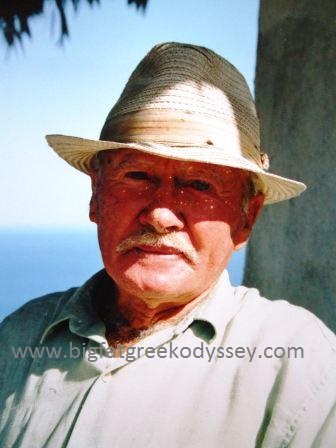
A favourite old friend, Artemios, from Santorini typifies the Greek character: generous, maverick and an expert at skinning prickly pears
Greeks will never be cool-headed, flinty, northern European clock-watchers, which is why generations of foreigners have flocked to Greece for respite. Apart from its physical beauty, Greece still has the human touch, which is something that has been lost in many parts of Europe, and the UK as well, to a degree.
Greeks have not been blameless in the way they have handled their economy, but I believe that it’s basically because they are different from their northern partners, their character has come in for a battering. They have been labelled as lazy, work-shy and corrupt, and these clichés have been echoed unfairly throughout much of the international media.
There is corruption, of course, as there is in every country, and there are complex reasons for it, but I believe that due to a weaker and not very independent media, the corruption and excesses of past governments have not been exposed as they might have been in western countries. Only now are we seeing more transparency in Greece, and the internet and social media has helped to expose wrongdoing where some of the press has not.
We forget that Greece has only recently emerged from a devastating series of occupations and political upheavals: 400 years of Turkish occupation; the punitive German occupation of the Second World War and the Greek civil war it spawned, and a disastrous military takeover in 1967 with a regime that lasted until 1974.
Four decades of relative calm since the 1970s is but a drop in the ocean for a country to re-invent itself. Until recent weeks, at least, the economic crisis was just another upheaval that Greeks have had to cope with.
During my time in Greece, I have found Greeks are among the hardest working people in Europe. In the last five years I met countless people, especially in the restaurant trade, who work more than 12 hours a day, seven days a week from May to October and in many areas like the Peloponnese will then do a long olive harvest in the winter.
Foteini, one of my farming friends in the Mani, who features prominently in both my books, is an unforgettable character and the toughest woman (a pensioner!) I’ve ever met anywhere. She harvests olives from her 200 trees, alone, every year, without fail, and rears a few goats to supplement her paltry farmer’s pension of 300 euros a month, which has been cut back since 2011. No pensioner in the UK would live like Foteini.
Not only have the Eurocrats tried to reinvent the Greek personality but they have also asked for the impossible, for a country to change its system overnight.
Andreas, one of our Greek friends in the Mani, who I wrote about in my second memoir Homer’s Where The Heart Is, put it this way during a discussion about the crisis in 2012, and I quote from the book (chapter 20): “The Troika moans at us… they say we don’t make changes fast enough in the government, and with taxes… but they want us to change centuries of customs and business in a few months. We cannot do it! Impossible!”
The recent events have proved him right. Impossible, and heartbreaking!
After a lifetime of visiting Greece and after four years living in the southern Peloponnese, most recently Koroni, in Messinia, I do not recognise many of the criticisms and cliches levelled at the Greeks. And nor do I feel they deserve the excruciating contempt and hatred that has been slung at them during the crisis.
Perhaps the main fault of ordinary Greeks (and not the dynastic elites or the shipping magnates) is not just making a mess of their fiscal spreadsheets, but in not putting money first in the way that other societies in the west do. In my opinion, this is a country that has put life to the fore, and people, with a belief in leventia (generosity of heart), parea (company), kefi (high spirits) filotimo (sense of honour).
I have found Greeks to be the kindest people I have ever met. When we lived in Koroni for a year, we befriended a couple who had a small holding (with a few goats and chickens) near to where we lived. Tasos and Eleni are warm-hearted and interesting people, whom we saw regularly and became fond of, along with their lovely family.
One day, after their long olive harvest, they arrived at our house with a big basket full of gifts from their farm: olive oil, olives, capers, goat cheese, herbs, and a bottle of their homemade wine (above). They simply wanted to show us hospitality, filoxenia, and make our stay more pleasant. We were overwhelmed by this gesture of friendship. It’s not the first time I’ve experienced this in Greece. Whether Greeks are in crisis or not, they never lose this generosity, or their indomitable spirit. The Zorba factor.
I believe it’s not Greeks who need to change radically, it’s the ‘other’ Europeans. They need to thaw and become more like the Greeks; get in touch with their inner Zorba. Perhaps then they’ll understand Greeks a bit better, offer a more reasonable fiscal blueprint for the future. And create a more compassionate EU.
As Nikos Kazantzakis, author of Zorba the Greek, wrote: “A man needs a little madness in his life!”
The Eurocrats need to kick off their shoes, find a beach and dance on it. Opa!
Homer’s Where The Heart Is
TO read more about living in Greece during the crisis in the southern Peloponnese, read my new travel memoir Homer’s Where The Heart Is. This is the sequel to my first memoir, Things Can Only Get Feta (first published in 2013) about the start of our three-year adventure living in the rural Mani.
To those who have already read the latest book, thanks for your kind comments and Amazon reviews, which are always appreciated.
Both books are available on all Amazon’s international sites and also on the Book Depository www.bookdepository.com (with free overseas postage). If you are in Greece you can inquire about having the book ordered at your branch of the Public store www.public.gr
If any readers have queries about availability for both books, please contact me via the contact page on our website www.bigfatgreekodyssey.com where you will also find a ‘books’ page with other information about the books.
To buy either of my books please click on the Amazon links below:
You can also find me on Twitter @fatgreekodyssey
And Facebook www.facebook.com/ThingsCanOnlyGetFeta
www.facebook.com/HomersWhereTheHeartIs
Thanks for calling by.
© All rights reserved. Text and photographs copyright of the authors 2016. No content/text or photographs may be copied from the blog without the prior written permission of the authors. This applies to all posts on the blog.
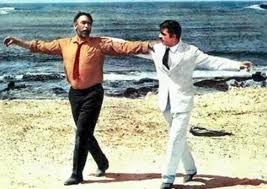
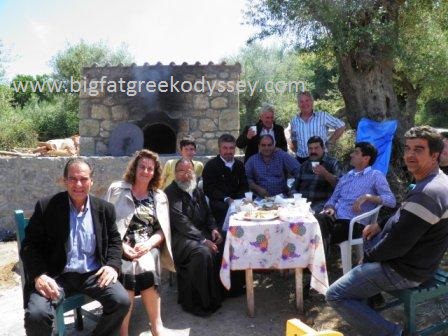
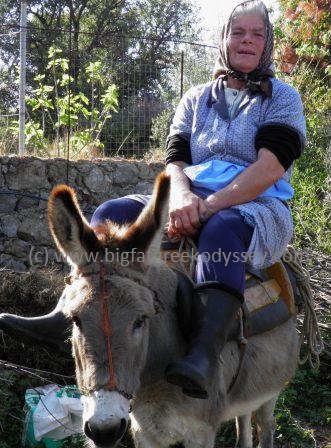
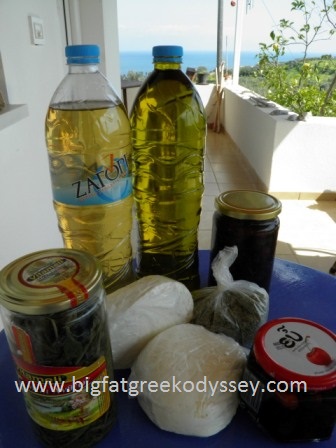
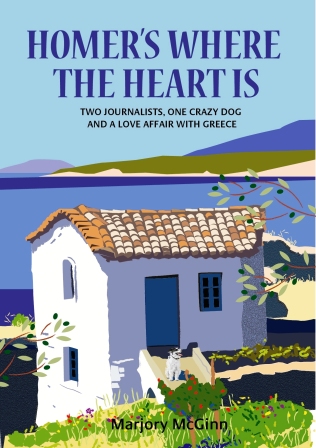
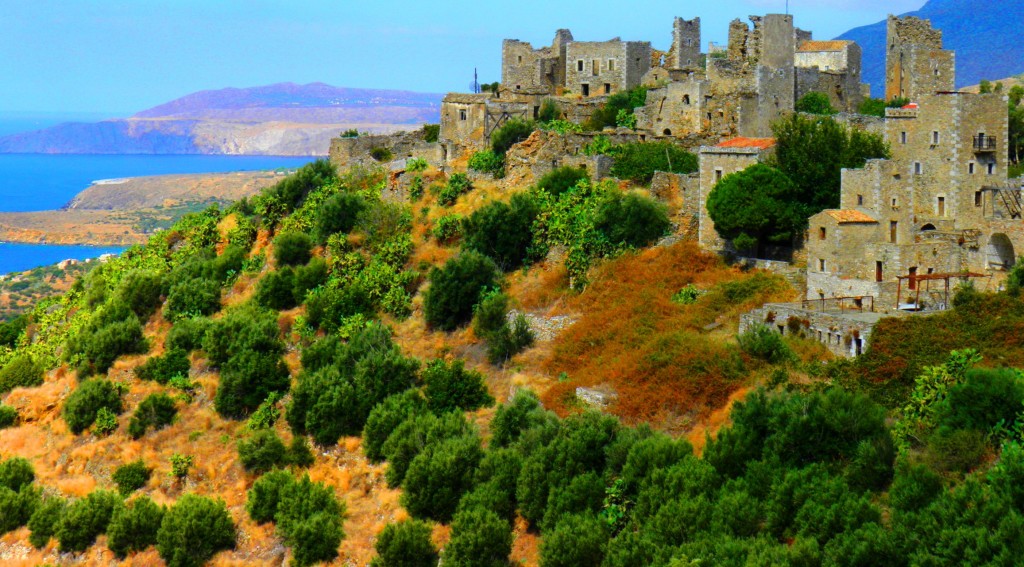
I too think everyone should be kinder to the Greeks – not just call them little children. Their referendum, for example, should have reminded everyone where democracy began. They just do things their own way, and I think that is a good thing and should be respected..
An article that says it all. We spend a lot of time every year in Greece for all of the reasons you mention. I would like friends and colleagues to understand why our feelings about both Greece and its people are so intense. The article should be published in its full format nationally.
Hi Chris,
Thanks for your kind comment. I wrote it just for the reasons you gave, to answer all the people who constantly ask me: ‘What’s the big deal about Greece?’, especially in this time of crisis when international confidence in the country is so low.
Regards and filakia xx
Hi Jane,
Thanks for writing to the blog. I agree with you about the fact Greeks deserve respect. One of the things foreigners love about Greeks is that they are great individualists; they have big characters. I do hope that after the battering they’re about to get by the EU with more punishing austerity that it won’t change the character of these unique people. That would be tragic!
Regards,
Marjory
Well said, Marjory! I’m currently reading HOMER’S WHERE THE HEART IS and have found it especially poignant as I watch what’s happening in Greece these days. BUT, it is because I’ve gotten in touch with my “inner Zorba” that I have not yet finished reading it – though I am enjoying it thoroughly. I’m savoring it slowly like mesedez and ouzo and then of course, here in Greece, I keep getting sidetracked by too much “kefi.” LOL!
Hi Linda,
That all sounds pretty darned good. Have an ouzo for me as well. Glad you’re enjoying Homer. I think you haven’t finished it yet because you keep getting up and dancing the syrtaki on the beach and losing your place. Keep the kefi going and enjoy your wonderful holiday in Greece.
Φιλακια πολλα χχχχ
Regards,
Marjory
Dear Marjory,
Thank you for writing the details of our dream. My wife and I have dreamed of visiting Greece ονε μορε τιμε, living in a mountain village (in Kriti) for several months, improving our Greek, and learning what life is really about. Since we are in our late 70s this may never happen which makes us all the more grateful for your book. But what really let us know you were on the same page was being reminded of the time we introduced our 18-year-old son to the restaurant owner as το αγγούρι μας and hearing the whole restaurant roar with laughter!
Thank you, thank you, thank you.
Κeith
Dear Keith,
Thank you for sharing this very touching message about your dream of living in Greece.
As long as you are in reasonable health, don’t let age be a barrier to enjoying a small odyssey in Greece. I wouldn’t advise a remote mountain village perhaps, but a nice house nearer the sea with warm, caring Greek neighbours. I think you would both be fine. Life’s too short not to see dreams come true. Do keep in touch with me and tell me if you decide to go for it.
Also, thanks for sharing your funny story of your language slip, calling your son “a cucumber”. We all do it!!
With all good wishes for the future.
Kind regards,
Marjory
Hi. I had to leave a comment. This is the most sensible thing I have seen on the Internet for a long time. I completely agree that greece was treated harshly and countries like the UK and Germany could learn a lot. Isn’t it ironic that greece is the one of the most popular tourist destinations for both these countries. It’s not just the weather, but the lifestyle that keeps tourists going back every year. Make greece more like the rest of Europe and you lose the whole essences of the place we love so much.
Thank you for posting this
Hi,
Thanks for your comment. I agree that it doesn’t make sense to mess with something as unique as Greece. I am in awe of how stoical Greeks have been with all the meddling that has gone on in that country. If all this happened in the UK, people would be going bonkers over it.
Kind regards,
Marjory
Good article, but from someone who comes from Mani, the “the” when referring to Mani is not necessary.
Hi,
Thanks for your comment. However, in English we tend to put ‘the’ in front of Mani because it is a region of the Peloponnese, much as we would say, the Cotswolds, or the Lake District. Although Patrick Leigh Fermor’s book is called Mani, even he referred to it generally as the Mani. But it’s a matter of taste. You can say either and it’s acceptable.
Regards,
Marjory